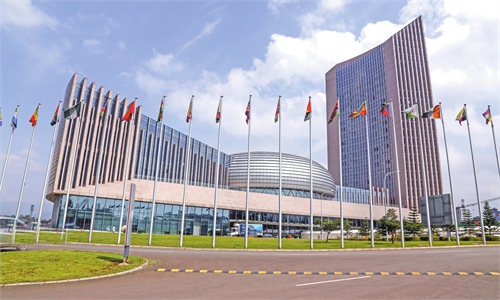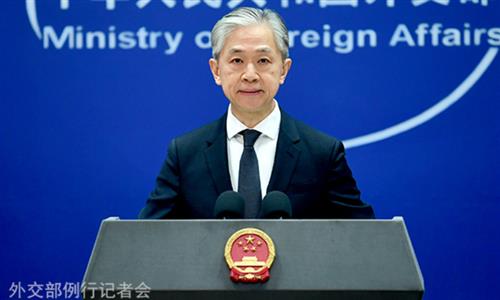Western criticism of China-Africa digital cooperation hinders African digital progress

Illustration: Chen Xia/Global Times
As China-Africa cooperation continues to expand, the digital economy is emerging as a key area of collaboration between the two sides. China is assisting Africa's digital transition through the construction of digital infrastructure, provision of services and talent training, aiming to ensure that Africa does not miss out on valuable development opportunities in the digital age.However, this has triggered a new round of attacks from the West. On one hand, there is stigmatization of China-Africa digital cooperation from the West, while on the other hand, there are demands for Africa to take sides in geopolitical games from the West. By using both soft and hard tactics, the West is attempting to obstruct China-Africa digital cooperation and reverse Africa's digital development process.
The West's demonization of cooperation between China and Africa continues to intensify. For a long time, the West has viewed cooperation between China and Africa through the lens of Cold War thinking, advocating negative narratives about China's development in Africa.
From smearing China's development financing to Africa as a "debt trap" during the COVID-19 pandemic, to stigmatizing digital cooperation between China and Africa as "digital infiltration," the West continues to find new attack lines, stemming from their envy and fear of China's rise.
Using data centers in Africa as an example, China is engaged in fierce competition in this field with companies from North America, with China offering more partnership opportunities and alternatives. African countries choose Chinese suppliers because China can provide the cost-effective technology and more attractive financing solutions. This is something that the currently protectionist and populist Western countries cannot provide, leading them to slander Chinese companies under the guise of digital security.
It has been shown over time that the Western model of development does not help Africa. From forced acceptance of African independence to the imposition of Western models on Africa, what the West has brought to Africa is not peace and prosperity, but turmoil and poverty. This is why Africa is fundamentally opposed to the conditions attached to Western aid.
Current digital technology is empowering the global economy's recovery and development, but there are technological and financial bottlenecks for Africa to achieve digital transformation. In the global information and communication technology infrastructure market, Chinese companies have a clear competitive advantage. While the West is concerned about investment risks, China provides more favorable support programs to help African countries build digital infrastructure, provide talent training, promote Africa to seize the opportunities of digital economic development.
The Digital Silk Road Initiative has injected momentum into Africa's development. Recently, China reached agreements with 26 African countries to strengthen digital partnerships in talent training, innovation, and infrastructure over the next three years. Over recent years, under the Digital Silk Road Initiative, African countries have made significant progress in digital development, with China's assistance often being cited as a crucial element.
As the digital competition among major countries intensifies, the West has increasingly viewed digital technology as a tool of strategic and "security" importance. Against this backdrop, the pressure exerted by the West on China undoubtedly adds uncertainty to the flourishing digital industry in Africa. For Africa, which is awakening to the importance of empowering its own development, missing the boat of the digital economy again would undoubtedly be disastrous.
Currently, the US' arbitrary "small yard high fence" approach and technology containment on China have extended to press China's digital cooperation with developing countries in Africa and other regions. Maintaining strategic autonomy is a frequent topic in African policy discussions, with a key diplomatic focus on leveraging China's support to advance the digital economy while mitigating potential US criticism.
The author is professor with School of International Relations and Diplomacy, Beijing Foreign Studies University. bizopinion@globaltimes.com.cn



